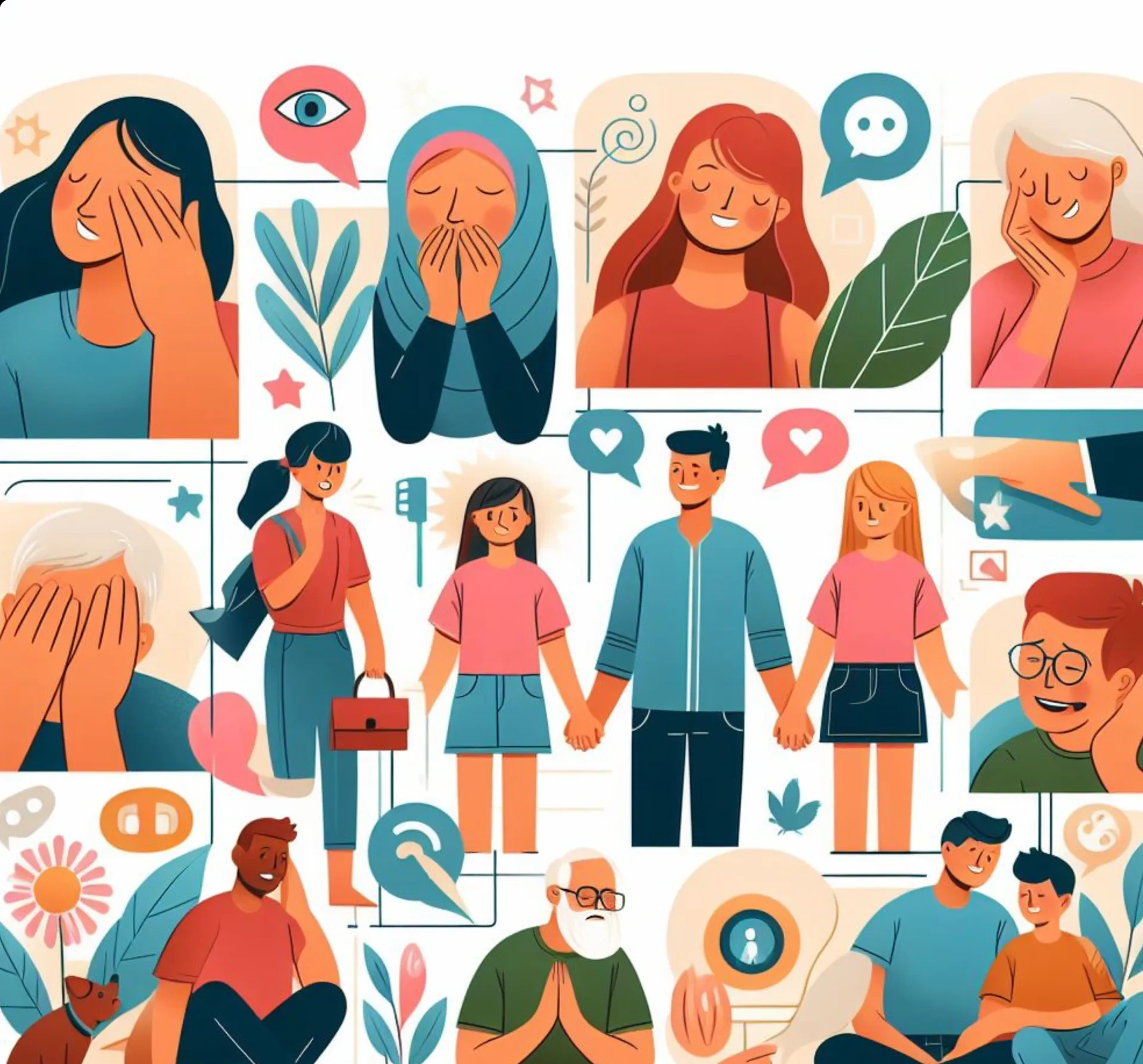Why The Same Old Argument Keeps Repeating?
Why Do You Or Your Partner Keep Repeating The Same Old Argument?
“One day while arguing with my ex-wife I realized that not only were we arguing for the hundredth time we were arguing about the same thing…"
Gay Hendricks – The Relationship Solution
Ever wonder why you and your partner-relative-friend keep repeating the same old argument? In this article I will not only tell you why – and possibly run the risk of putting you to sleep with the official research :) – but I will give you 2 proven solutions to overcome it.
Why We Repeat The Pattern
There is actually a very simple reason why we repeat arguments with someone. Drum roll… we are activating a memory in the body that is still incomplete, has a lot of fear associated with it, or both. Let me explain.
We have this powerful internal system in our bodies called implicit memory. It allows us to not have to think about things we have repeated over-and-over again. We just do it. It’s automatic.
For example - riding a bike, playing an instrument, or driving a car. Once we learn something and practice it, we stop thinking about all the details we needed to know initially. Make sense?
Now let’s apply this to when you were little and unable to rationalize very well, and we’ll relate it to how well your needs were attended to early in life.
What if you didn’t get your needs met at least 60% of the time? What if you were told what to do and your voice didn’t matter much? What if the situation was one of high tension and you just assumed it was not safe to ask for what you wanted? What if you were told over-and-over again that you were wrong and that what you were thinking was stupid?
Like two porcupines in heat sometimes the challenge to get your needs met required a delicate touch. And yet, remember, you were young and incapable of knowing how to handle it!
There are probably millions of possible variables but the bottom line is this: people who had this happen to them didn’t learn that getting their needs met was going to happen very often – and (here is the key) the beliefs and pattern associated with it got stored in their implicit memory system.
Of course there is a spectrum of where people are at with this problem, right? Every person is different on how often their needs were met and how they interpreted each experience related to it.
For now, decide where you may fit (i.e. 40% or 50% etc) on the spectrum and let’s continue.
As a reminder, our overarching goal in this article is to help you to see the underbelly of why arguments and fights repeat themselves.
Another Layer…
The next step is to realize and fully accept you probably created coping patterns to deal with not getting your needs met.
For example, if you got punished in some way for speaking out when you wanted something, part of you was in conflict.
To guarantee your survival you may have developed the ability to “ignore” what you wanted because it was too painful to deal with the alternative. In essence, you learned to suppress it AGAINST your natural desires and impulses. Over time this became normalized and stored in the implicit memory system.
If the dynamics are repeated enough times, you lose touch with your organic impulses to make requests and ask for help. Yet, underneath it all the “natural impulse to ask for what you are needing” is screaming to get out of its prison.
The challenge then is to realize this survival memory follows you throughout your life. It can be changed but most people don’t even know they are engaging the unconscious routines that cause the glitch in their current relationship. But now you have the information to recognize it and change it. Right?
Remember, if you experience arguments and fighting along with blame and distancing behaviors you know you are caught up in these unconscious routines.
These are easy to see once you know what to look for but lets review before we dive into that.
Where we’ve been so far…
So where are we? You know you have a memory system to make things easier to remember and it’s very efficient.
You know that this system will hold memories that are good and maybe painful.
You also know that painful memories may be covered up with unconscious routines to avoid them. And you know that these routines are unconscious because of repeating them so often they became part of the implicit memory system.
What this means is you may be engaging the unconscious routines to various degrees in any of your relationships any time your personal needs come up.
The next question to ask yourself is “How do I ‘see’ them and change them so I can get better results?"
Solution #1
The first step to changing any unconscious pattern is to acknowledge the moment when you are unhappy with any outcome or situation. Then be open to the possibility that you may be engaging your unconscious patterns or routines that contributed to it.
This is a big deal because the reason we used the coping pattern in the first place was to avoid the pain of the alternative. The decision to change the pattern immediately implies that you will have to feel the original pain you have been fighting so hard not to feel. Following me so far?
Well, this is a false belief…
…and part of your brain may challenge you tooth-and-nail to avoid facing what it believes is a really bad choice. If you study this you’ll see one really important flaw in the logic that the unconscious has decided.
The flaw is this: When you originally decided to create the coping pattern you believed certain things were true. The problem with the conclusions you came up with in your early life experiences is they reflects the reality that your brain was not fully developed yet and operated out of pure survival instincts.
You didn’t know how to question the validity of your assumptions and inferences so you could draw healthy conclusions.
Let’s assume for a minute you were 6 months old and your diaper needed changing and no one answered your cries. Over time you would suppress your desire to have it changed even when it’s really uncomfortable and probably suppressed the rage towards people ignoring you. (I know this one real well so I can relate.)
Now if you would have had the ability to say “Hey what’s going on here! My diaper needs to be changed!” You would have gotten feedback to validate or disconfirm your inferences. You may have also been aware enough to not take it personally. But, that is often not what happens as we’ve been sharing.
The key takeaway is this: “When babies draw conclusions they are missing vital information.” Never, ever, forget this. This fact alone has saved more grief then most therapy sessions.
This leads us to solution #2…
As an adult you can change these unconscious beliefs and routines but you need to collect more information before you can modify the unconscious programs.
You can stop and say out loud “Here is what I’m thinking… is it true?” and see what happens. This eliminates any guess work.
But there is a downside…
What if the person you ask is afraid to tell the truth because of their own unconscious routines! (Yes, I know, it’s a wonder we can even exist as a species.) Well, I’d like to tell you it works every time but I would be lying. Sometimes you have to pry the truth out of people.I will share more about this in future blog writings. (Be sure to post your questions about this below so I can focus on what you are wondering about as it relates to this.)
In general, though, if you say something like “I thought I heard you say_ and I think it means ___. Is that true?” you will get clarification about what is intended in the communication.
As you might imagine, it’s a great opportunity to build a deeper bond with the person. The reason is, they are feeling more “heard” and it communicates to them you are genuinely interested in clearing up any miscommunication.
WARNING: This sounds easier than it is! As good as I am, after 20 years of practice sometimes my investigations are taken with suspicion and resistance. So it’s not bullet proof but its a great start. Fair enough?
Conclusions:Like a fish in water, it’s hard to see your unconscious patterns. The fast path to discovering them is to simply look at the results you are getting and then assume there is unconscious programming at work.
It’s also a good idea to remind yourself it’s YOUR unconscious programming not anyone else’s. Then be curious about what unconscious programming is interfering with the result you actually want. When you forget this you lose your power and think it's the other person causing the problem when in actuality it's your unconscious reaction causing the problem that needs to be questioned.
Like magic, when you address the underlying needs and can speak to them openly, arguments end and harmony emerges. Over time, the unconscious programs are replaced by your new found habits and become the new backdrop for the relationship – giving you far better results.
Please be sure to post your comments and questions below. And take a moment to look on this page for events and webinars where you can resolve these unconscious dilemmas that are most often at the root of most people’s success or demise in life. I’ve spent the past 20 years sorting out how to resolve them and am happy to help you when the time is right.
Many blessings on your life journey.

